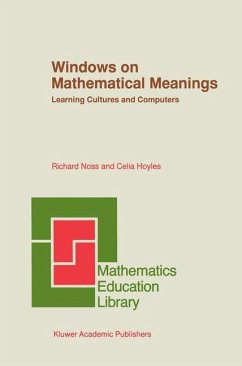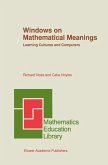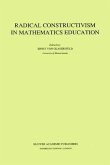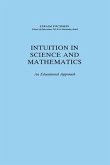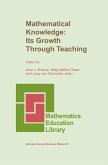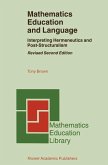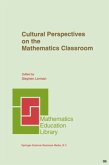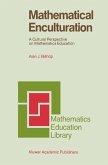This book is the culmination of some ten years' theoretical and empirical investigation. Throughout this period, we have come into contact with many who have stimulated our thinking, some of whom belong to the community of Mathematics Educators. Our membership of that community has challenged us to make sense of some deep issues related to mathematical learning, especially the cognitive and pedagogical faces of mathematical meaning making. Alongside this community, we are privileged to have been part of another, whose members are centrally concerned both with mathematics and educa tion. Yet many of them might reject the label of Mathematics Educators. This community has historically been clustered around what is now called the Epistemology and Learning Group at the Massachusetts Institute of Technol ogy. Their work has focused our attention on cognitive science, ethnography, sociology, artificial intelligence and other related disciplines. Crucially, it has forced our awareness of the construction of computational settings as a crucial component of the struggle to understand how mathematical learning happens. We have sometimes felt that few have tried to span both communities. Indeed, an analysis of the references in the literature would, we are sure, reveal that the two communities have often ignored each other's strengths. One reason for writing this book is born of our hope that we might draw together Mathematics Educators and mathematics educators, and assist both communities in recognising that there are insights that might be derived from each other.
Hinweis: Dieser Artikel kann nur an eine deutsche Lieferadresse ausgeliefert werden.
Hinweis: Dieser Artikel kann nur an eine deutsche Lieferadresse ausgeliefert werden.
"Noss and Hoyles take on the field of Mathematics Education as a whole to develop a coherent theoretical framework that will encompass its psychological, social, pedagogical and epistemological dimensions. Their pages abound with socratic flies to torment anyone who claims to understand concepts like abstract, concrete, formal, common-sensical and even mathematics, without the context of an elaborated theory. At the same time they present the most elaborated theoretical discussion to date of how the computer presence might contribute to the development of the field."
Seymour Papert, Massachusetts Institute of Technology
`I would say that the book is very readable, and contains a number of interesting details as well as the construction of a theory. It is one important step in developing a theoretical framework for the use of technology in mathematics education.'
Nordic Studies in Mathematical Education, 3 (1997)
Seymour Papert, Massachusetts Institute of Technology
`I would say that the book is very readable, and contains a number of interesting details as well as the construction of a theory. It is one important step in developing a theoretical framework for the use of technology in mathematics education.'
Nordic Studies in Mathematical Education, 3 (1997)

